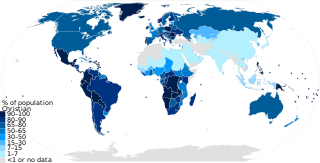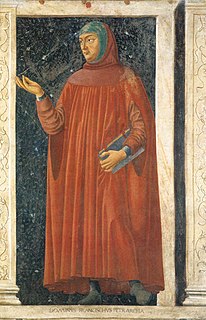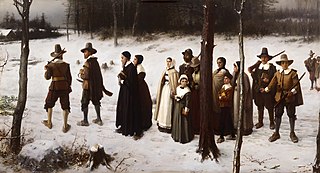1700-1900
New approaches to the history of Christianity were introduced by Leopold von Ranke (1795-1886) and Philip Schaff (1819–92). They emphasized the need for more neutrality, with the goal of understanding history as it actually happened, rather than promoting or defending ones theological heritage. Von Ranke in 1843 finished his six‐volume German History in the Epoch of the Reformation then turned to a multivolume History of the Popes during the Last Four Centuries. Schaff, deeply schooled in the German tradition, relocated to the United States in 1844. His History of the Christian Church (7 vols., 1858–1890), set new standards for the American study of ecclesiastical history. He demonstrated how to integrate liturgical developments. He also introduced European scholars to American religion, arguing that American sectarianism, with all its faults, was preferable to European church-statism. [3]
Pietism and benevolence
Pietism was originated in 18th-century Germany and was emulated in neighboring countries. It had a major impact in England and North America, where it affected the Methodist movement and a series of revival outbursts known as the Great Awakening in the United States. It involved an intense internal focus on sin and salvation through Christ, and in the form of evangelicalism, remains a powerful force in Protestantism well into the 21st century. Pietism emphasize the value of revivals, leading to the born-again experience, and inspired its followers to set high moralistic standards for public behavior, as in such areas as opposition to alcohol and slavery. [4]
Historians have explored the impact of the new religious sentiments of the 18th and 19th century on the organizational behavior of laymen. Protestants sponsored voluntary charitable and religious societies, including overseas missions throughout the empire, setting up Sunday schools, founding charity schools, distributing Bibles and devotional literature, creating and emphasizing hymns and communal singing, and setting up revivals. [5] A major result was the establishment of an international battle against slavery as an affront to Protestant morality. [6]

Christianity is an Abrahamic monotheistic religion based on the life and teachings of Jesus of Nazareth. Its adherents, known as Christians, believe that Jesus is the Christ, whose coming as the Messiah was prophesied in the Hebrew Bible – the textual basis for the Old Testament in Christianity – and chronicled in the New Testament. It is the world's largest religion, with about 2.4 billion followers as of 2020. Christians make up a majority of the population in 157 countries and territories.

Christendom historically refers to the "Christian world": Christian states, Christian-majority countries and the countries in which Christianity dominates or prevails.

The history of religion refers to the written record of human religious feelings, thoughts, and ideas. This period of religious history begins with the invention of writing about 5,220 years ago. The prehistory of religion involves the study of religious beliefs that existed prior to the advent of written records. One can also study comparative religious chronology through a timeline of religion. Writing played a major role in standardizing religious texts regardless of time or location, and making easier the memorization of prayers and divine rules. A small part of the Bible involves the collation of oral texts handed down over the centuries.

The Reformation was a major movement within Western Christianity in 16th-century Europe that posed a religious and political challenge to the Catholic Church and in particular to papal authority, arising from what were perceived to be errors, abuses, and discrepancies by the Catholic Church. The Reformation was the start of Protestantism and the split of the Western Church into Protestantism and what is now the Roman Catholic Church.

The "Dark Ages" is a historical periodization traditionally referring to the Early Middle Ages or Middle Ages, that asserts that a demographic, cultural, and economic deterioration occurred in Western Europe following the decline of the Roman Empire.

Early modern Europe is the period of European history between the end of the Middle Ages and the beginning of the Industrial Revolution, roughly the late 15th century to the late 18th century. Historians variously mark the beginning of the early modern period with the invention of moveable type printing in the 1450s, the Fall of Constantinople and end of the Hundred Years’ War in 1453, the end of the Wars of the Roses in 1487, the beginning of the High Renaissance in Italy in the 1490s, the end of the Reconquista and subsequent voyages of Christopher Columbus to the Americas in 1492, or the start of the Protestant Reformation in 1517. The precise dates of its end point also vary and are usually linked with either the start of the French Revolution in 1789 or with the more vaguely defined beginning of the Industrial Revolution in late 18th century England.

Philip Schaff was a Swiss-born, German-educated Protestant theologian and ecclesiastical historian, who spent most of his adult life living and teaching in the United States.
In sociology, secularization is the transformation of a society from close identification with religious values and institutions toward nonreligious values and secular institutions. The secularization thesis expresses the idea that as societies progress, particularly through modernization and rationalization, religious authority diminishes in all aspects of social life and governance.

The history of religion in the United States begins in 1776 with the American Revolution. For religion in North America before that, see the histories of particular colonies or the traditions of the continent's diverse Indigenous peoples.
Protestantism originated from the Protestation at Speyer in 1529, where the nobility protested against enforcement of the Edict of Worms which subjected advocates of Lutheranism to forfeiture of all of their property. However, the theological underpinnings go back much further, as Protestant theologians of the time cited both Church Fathers and the Apostles to justify their choices and formulations. The earliest origin of Protestantism is controversial; with some Protestants today claiming origin back to groups in the early church deemed heretical such as the Montanists.

Christianity is the largest religion in Europe. Christianity has been practiced in Europe since the first century, and a number of the Pauline Epistles were addressed to Christians living in Greece, as well as other parts of the Roman Empire.
Rodney William Stark is an American sociologist of religion who was a longtime professor of sociology and of comparative religion at the University of Washington. He is presently the Distinguished Professor of the Social Sciences at Baylor University, co-director of the university's Institute for Studies of Religion, and founding editor of the Interdisciplinary Journal of Research on Religion.

Christianity has been intricately intertwined with the history and formation of Western society. Throughout its long history, the Church has been a major source of social services like schooling and medical care; an inspiration for art, culture and philosophy; and an influential player in politics and religion. In various ways it has sought to affect Western attitudes towards vice and virtue in diverse fields. Festivals like Easter and Christmas are marked as public holidays; the Gregorian Calendar has been adopted internationally as the civil calendar; and the calendar itself is measured from the date of Jesus's birth.

Protestantism is a form of Christianity that originated with the 16th-century Reformation, a movement against what its followers perceived to be errors in the Catholic Church. Protestants reject the Roman Catholic doctrine of papal supremacy and sacraments, but disagree among themselves regarding the real presence of Christ in the Eucharist, and matters of ecclesiastical polity and apostolic succession. They emphasize the priesthood of all believers; justification by faith alone rather than by good works; the teaching that salvation comes by divine grace or "unmerited favor" only, not as something merited ; and affirm the Bible as being the sole highest authority, rather than also with sacred tradition. The five solae summarise basic theological differences in opposition to the Catholic Church.

Christianity was introduced with the first European settlers beginning in the 16th and 17th centuries. Colonists from Northern Europe introduced Protestantism in its Anglican and Reformed forms to Plymouth Colony, Massachusetts Bay Colony, New Netherland, Virginia Colony, and Carolina Colony. The first arrivals were adherents to Anglicanism, Congregationalism, Presbyterianism, Lutheranism, Quakerism, Anabaptism and the Moravian Church from British, German, Dutch, and Nordic stock. America began as a significant Protestant majority nation. Significant minorities of Roman Catholics and Jews did not arise until the period between 1880 and 1910.

Christian revivalism is increased spiritual interest or renewal in the life of a church congregation or society, with a local, national or global effect. This should be distinguished from the use of the term "revival" to refer to an evangelistic meeting or series of meetings. Proponents view revivals as the restoration of the church itself to a vital and fervent relationship with God after a period of moral decline.

Philip Benedict is an American historian of the Protestant Reformation in Europe, currently holding the title of Professor Emeritus at the University of Geneva’s Institute for Reformation History.

Most sources of knowledge available to early Christians were connected to pagan world-views. There were various opinions on how Christianity should regard pagan learning, which included its ideas about nature. For instance, among early Christian teachers, Tertullian held a generally negative opinion of Greek philosophy, while Origen regarded it much more favorably and required his students to read nearly every work available to them.
The history of Christianity in Britain covers the religious organisations, policies, theology, and popular religiosity since ancient times.
In sociology, desecularization is the proliferation or growth of religion, usually after a period of prior secularization. The theory of desecularization is reactionary to the older theory known as The Secularization Thesis, which posits a gradual decline of religion to a point of extinction. In the last few decades, scholars have pointed to continued church attendance in Western countries, the rise in religious fundamentalism, and the prevalence of religious conflict as evidence of the continued relevance of religion in the modern world. A former proponent of the earlier secularization thesis, Peter L. Berger, has now expressed his support for the newer theory, stating that the world today "is as furiously religious as it ever was".












